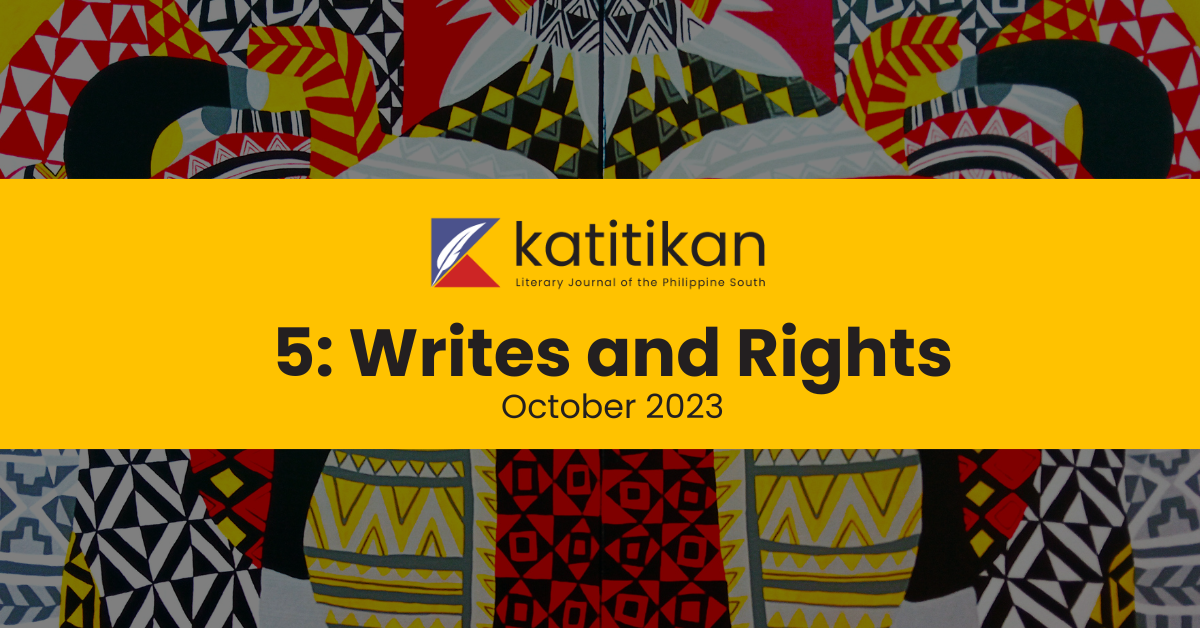October 2023
-

Katitikan Issue 5: Writes and Rights
The 5th issue of Katitikan explores “Writes and Rights,” highlighting the intersection of literature, identity, and advocacy in the Philippine South.
-
Our Voices, Words of Law
“Law is associated with literature from its inception as a finalized attempt to structure reality through language.”-Kieran Dolin When we talk about justice, or social justice for that matter, we do not think of literature first. We might have thought of the law, courts, trials, the scales of justice. But not poems, one-act plays,…
-
The Symphony of Frogs
The frogs sing a symphony at night. Especially after it rains, when the earth is still wet, the mountains dripping and the foliage and the corn fields are still soaked with rainwater, the frogs sing a symphony. Their obnoxious sounds blend and coat each other until they become one, coherent concerto in the blanket of…
-
The Slaying of the War Crab
The twin moons, which rose anew from the Eastern Sea, reminded Uway that he had failed to fulfill his purpose five rice harvests ago, that he must return to do what he had not done—what he was not able to do. On the day that he faced the War Crab, he was a warrior. He…
-
The Call of the Dead
2017 RAPID AND RHYTHMIC firing of heavy machine guns fill the air. Every second is a stream of bullets unleashed. Every bullet pierced human flesh it found, striking and shattering bones that came along its way, severing veins. The burst of gunfire tore through the silence that wrapped everyone in peace that midnight. Explosions erupted…
